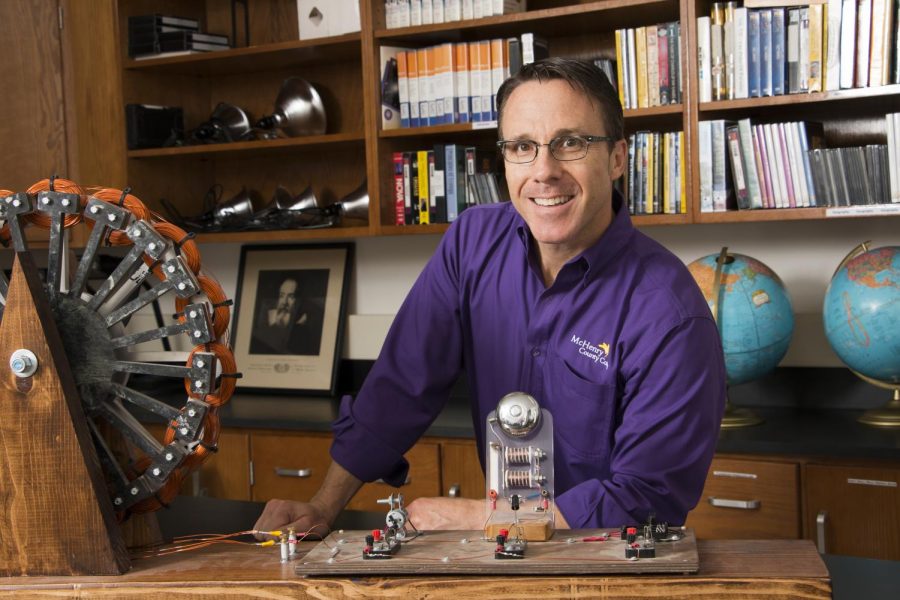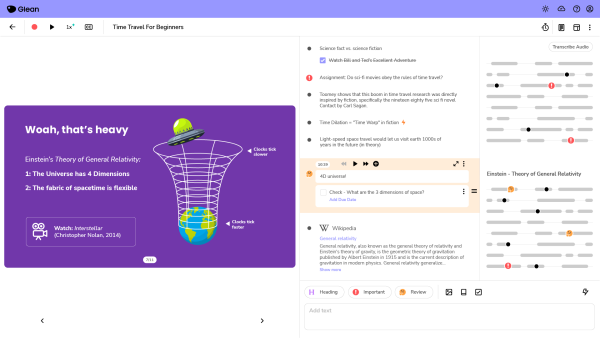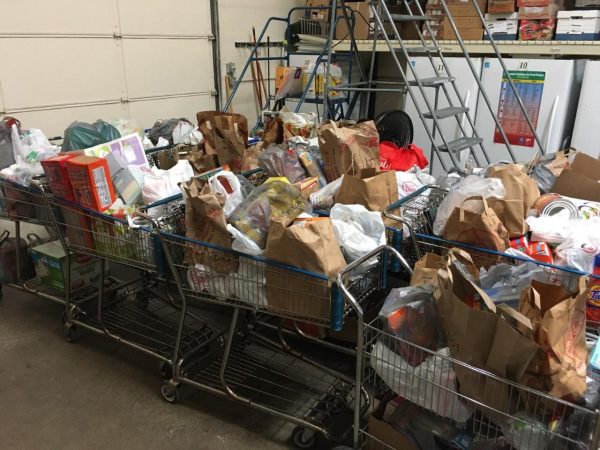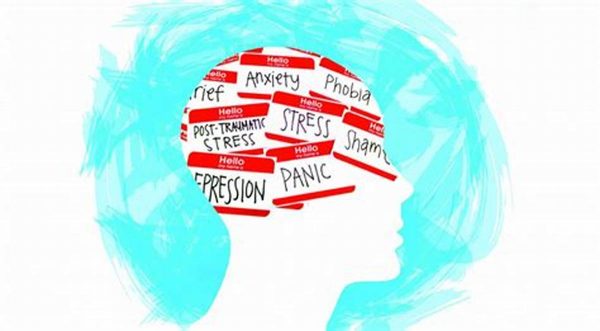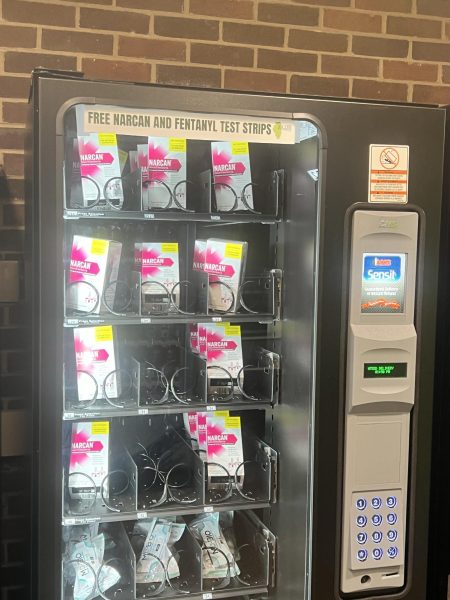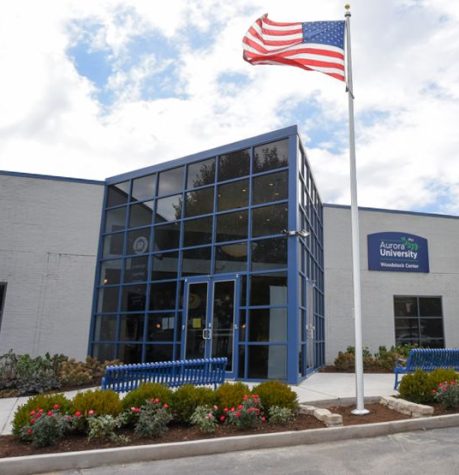Learning new tricks part of teaching now for MCC professor
October 1, 2020
Teaching courses online is not a particularly new concept in the modern age of technology. Though it is not as talked about as attending college physically, people have used online learning as a cheaper, more free-form way to get the education they need. However, as the country currently faces its roughly seventh month facing a pandemic, online learning has now become commonplace for a vast majority of students. From a student’s perspective, online learning may feel easier or more carefree, but what about from a teacher’s standpoint? While some teachers and professors can adjust just fine, some classes rely on being in person, and the hands-on experience.
Being a professor in Earth Science, Geology, and Geography means that Ted Erski normally involves student engagement and important activities with science labs. Starting near the end of last school year and the current fall semester, however, he has had to learn how to re-evaluate the way he teaches for online learning.
“I can’t do [physical labs] now. So, what I’ve done instead is spend a good amount more careful and deliberate time on the prepared material, especially… So that we can get coverage of that content that we otherwise would get coverage of if we could hold the samples in our hands,” Erski said.
Even though he feels it is not perfect, he understands everyone has to adapt with the current issue however they can.
While he is making the most of teaching online, Professor Erski greatly prefers the regular, hands-on way of doing activities like labs. “I always talk about how science is a way for curious nerds to scratch their itch, to be investigating interesting things,” he said. “[Online labs are] not the same caliber of delivery — if you can’t smash a mineral, if you can’t put a drop of acid on it and see it actually effervesce because you did something. It’s not quite the same…so I really prefer the hands-on environment.”
Even though it disappoints him to do these things online, he still feels that it is simply a matter of adapting. Eager to bring back the engaging and hands-on aspect of learning, however, Professor Erski plans on bringing back physical labs next semester.
Learning how to completely restructure a hands-on class may seem hard as it is, teachers have to also deal with doing this work at home now, much like students. Having an active family like many others, Professor Erski has had to find the way to keep his home-life separate from his work-life at home. Joking about the issues of “video-bombing” and running vacuums, Professor Erski discussed how he tries to avoid a bustling home life, while still providing clear content.
“I have an area in this part of my home that is fairly quiet, and that’s important because we can’t have a lot of interruptions…Setting that up before we started was really important.”
While setting up the perfect space was important, another issue was modifying how he talked. “I think typically, you have a natural inclination to increase your volume. The problem is, I’ve got family here; and they don’t want to hear — as fascinating as it is — about rocks and minerals, or earthquakes, or meteorology, or space stuff,” he joked. “And I really try to be conscious of not speaking too loudly.”
When you ask a student or professor about their current experience in the educational career, you usually expect a response from that perspective alone, but that is not always the case. Professor Erski is not only teaching courses online for students during the pandemic but is also learning courses as a student himself during this time.
“I take classes all the time because I never wanted to leave school. Right now, I’m in a class at Penn State, and it’s an Applied Demography class,” he said. “Graduate classes online are really intense, in a normal setting they’re intense. Typically you meet once a week, you read a whole bunch of stuff, you come and talk about the stuff you read, and usually there is some significant degree of writing that goes along with it. With the online material, I’m exceptionally careful with how I communicate to my peers and my professor.”
Because he knows everyone is under a lot of stress currently, he has had to learn to be introspective, careful and patient with others during this time. “Patience is a very important tool at this time.”
Despite all the challenges that both teaching and learning during a global pandemic seems to bring, Professor Erski believes that there is a lot to potentially be taken away from the experience. “Delivery of content should become much clearer and efficient because of the struggles we have had to go through in the last seventh months,” he said. “We have learned what works, what doesn’t work, and how to fix what doesn’t work in ways that we would have never, ever investigated had it not been for this crisis. So, while this crisis has been very difficult in many different ways, it has also brought opportunities for improvement, and new paths to go into that I’m finding are beneficial in a lot of ways.”
One major element Erski finds beneficial is the videos he has made during online learning, because of their effectiveness and response from students. Even though he has had new techniques forced onto him, he feels there are great things to take away from it all.
One final takeaway Professor Erski has gotten from this experience is that old dogs can learn new tricks.
“I’ve been doing this for 24 years just at MCC, and I have colleagues that have literally decades of teaching experience,” he said. “While the transition in March, April, and May were exceedingly difficult and disruptive. We’ve risen to the occasion and, in many ways, found an energized and passionate way to deliver content that we didn’t know we had in us…You can transform, even after many decades of doing what you know and love. And that transformation might be forced, but I can also bring some very positive changes. I would say that learning how to adapt to these changes that come at you… and encouraging yourself to be patient and flexible, is really an important lesson here. And it will give you a lot of traction and dividend as you take that next step in whatever you’re doing.”

